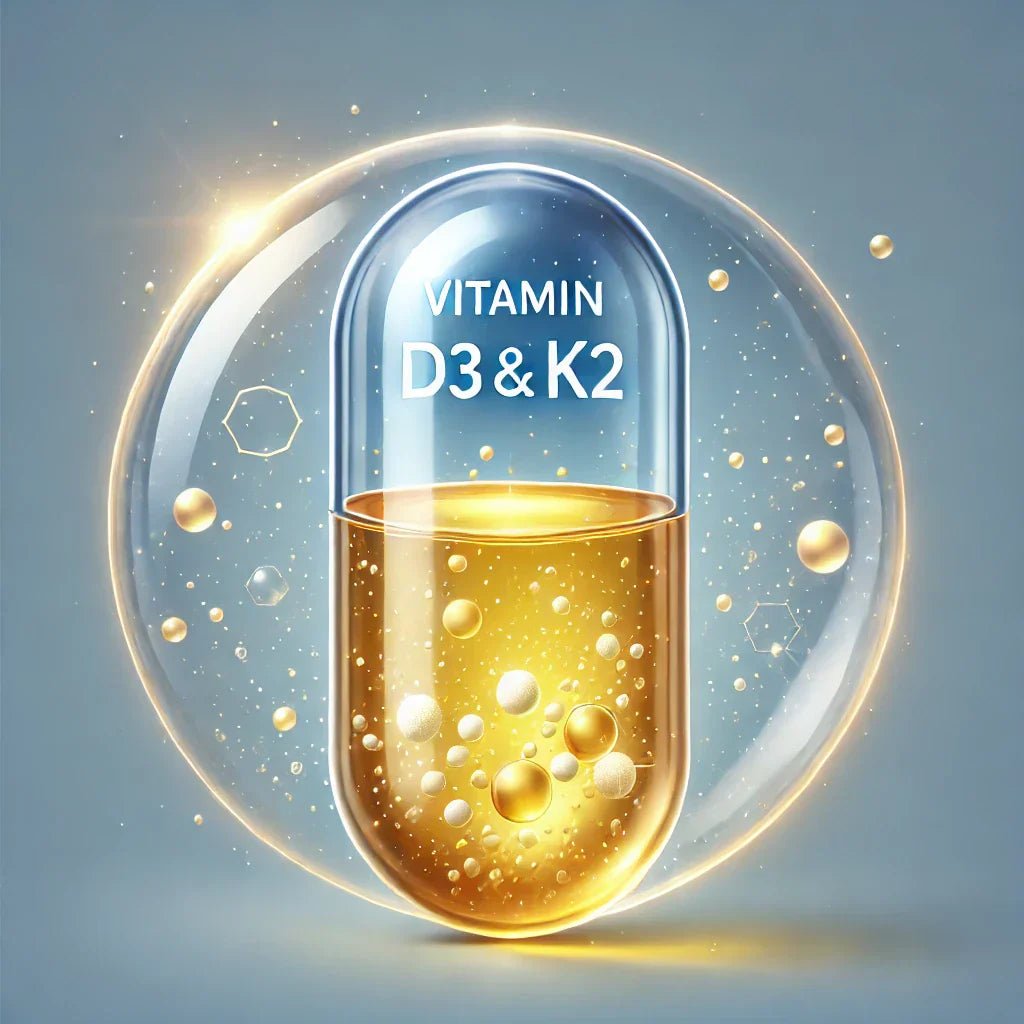Vitamin D3 and K2 are powerful vitamins that work in harmony to promote bone health, regulate calcium, and protect against heart disease. Together, they enhance calcium absorption and ensure it’s directed to the bones, reducing the risk of arterial calcification and improving overall skeletal and cardiovascular health.
What Is Vitamin D3?
Vitamin D3, the “sunshine vitamin,” is made when your skin is exposed to UVB rays. It plays a key role in calcium absorption, supporting strong bones, and reducing the risk of osteoporosis. Vitamin D3 also impacts mood and cognitive functions by regulating neurotransmitters like serotonin.
Common signs of deficiency include fatigue, weak bones, muscle aches, and poor immune function. Nearly half of U.S. adults are at risk of low levels, making supplementation vital for many.
What Is Vitamin K2?
Vitamin K2 regulates calcium by activating proteins that deposit it into bones and prevent buildup in arteries. This lowers the risk of cardiovascular disease and strengthens bones. It also aids in blood clotting and promotes fetal bone growth during pregnancy.
Signs of deficiency include easy bruising, bleeding gums, and heavy periods. Vitamin K2 is found in animal products, fermented foods, and supplements.
Why Take Vitamin D3 and K2 Together?
Vitamin D3 increases calcium absorption, while K2 ensures calcium goes to your bones instead of arteries or soft tissues. Without adequate K2, high calcium levels from D3 supplements could lead to arterial plaque and heart disease.
Top Benefits of Vitamin D3 + K2
- Heart Health: Reduces the risk of heart disease by preventing calcium buildup in arteries.
- Bone Health: Supports stronger bones by directing calcium to the bone matrix.
- Skin Health: Enhances collagen production, improving elasticity and overall skin appearance.
Recommended Dosage
For adults, daily needs typically include 600–10,000 IU of vitamin D3 and 10–100 mcg of K2, depending on health status and sun exposure. A balanced supplement should maintain a 1000:10 ratio of D3 to K2.
Choosing the Right Supplement
When selecting a D3 and K2 supplement:
- Ensure the product uses vitamin D3 (cholecalciferol), not D2, as it’s more effective.
- Look for a 1000:10 ratio, providing 10 mcg of K2 per 1000 IU of D3.
- Choose high-quality supplements with clear labeling and avoid excessive dosages.

Share:
Aging Gracefully: A Comprehensive Guide to Optimal Healthspan
A Festive Feast for Body and Soul: Balancing Holiday Cheer and Healthy Living